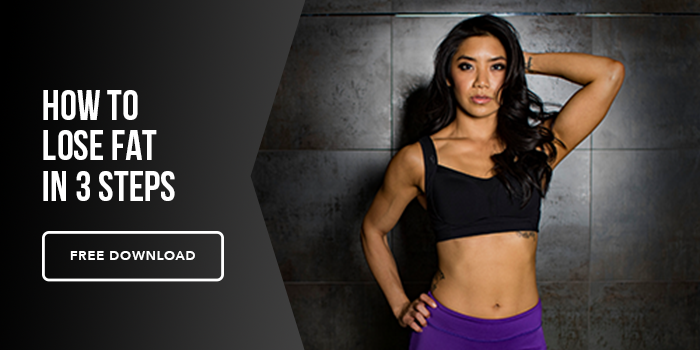Maintaining a consistent workout schedule is one of the best things we can do for our wellbeing. With a healthy balance of cardio, mobility, and strength training, hitting our health and fitness goals are well-within our reach.
However, some of us can tend to overreach and do TOO much, whether that means working out at too high of an intensity, volume, or frequency–or possibly a combination of all three. Whether your goal is to gain muscle or lose weight, there are some signs that can you can be aware of that could indicate you are overtraining.
Why Do We Lose Muscle or Gain Weight From Overtraining?
When we lift weights, and when enough resistance is applied, we produce tiny tears in our muscle fibers. This is a good thing! Without this microtrauma that takes place in the muscle, there wouldn’t be growth.
What many people don’t realize is that a bulk of the progress we make in terms of building muscle or losing fat happens during our recovery periods. It’s during the healing process when our muscles fibers start rebuilding, where they increase in mass and size. There are other factors that come into play when it comes to how quickly or effectively muscle growth occurs, such as hormone levels, nutrition, and sleep patterns, but intensity, volume, and frequency need to be applied at the appropriate levels first to create enough of a stress on the body.
Unfortunately, progress can regress if we take things up another level and are unable to recover properly. Think of the friend you know that works out six days a week for two hours, and they wonder why they are plateauing, or even gaining fat when they are trying to lose fat. More isn’t always better. Working out too much can actually lower testosterone levels while increasing cortisol levels. Peaks in cortisone naturally occurs when we work out, but from a physiological standpoint, chronically high cortisol levels can negatively impact the body.
Cortisol creates a surge of energy in your body, and it’s common to see an increase in appetite or cravings when cortisol levels are chronically high. And typically, these cravings are for the “bad” foods that are salty, fatty, or sugary. High cortisol levels have also been shown to negatively impact sleep, and can even lead to insomnia. Sleep is such a vital component to recovery, and when that is off, recovery will suffer. Poor sleep plus unhealthy eating will do nothing to positively impact your body composition.
With this in mind, we need to be cognizant of our recovery patterns just as much as our training schedule.
Here Are The Signs
Now that you have a better understanding of why our bodies negatively respond to too much exercise, here are some other things to look out for if you notice that you’re plateauing, or regressing. One, or a combination, of these signs could indicate that you’re overtraining if you start to notice that you’re losing muscle, or gaining fat.
- Your sleep is suffering. Healthy levels of cortisol contribute to restful nights of sleep. Low cortisol levels in the evenings help you fall asleep, while a steady rise in levels contribute to waking up feeling refreshed.
- You’re always hungry–or cravings have increased. We touched on this one already, but if you are always hungry, you may be overdoing your workouts. It’s normal for hunger to increase temporarily when you start a new routine or intensity, but your body should adapt to these changes and hunger levels should mellow out. If this doesn’t happen, and you constantly feel the need to eat calorie-dense foods, you may need to rethink your workout routine.
- Your stress levels have skyrocketed. Chronically high cortisol levels means chronically high stress levels. If you constantly feel on-edge, and are feeling more anxious than usual, start to re-evaluate your current routine and see about adding more rest or active rest days between workouts.
- There is a plateau in workout performance. If it is harder for you to get through your workouts, despite maintaining intensity levels, you may be overtraining. Increasing the intensity or trying new exercises will present a challenge that will take some time to overcome, but if you are struggling to meet your performance goals, or even regressing in this area, it may be time to cut back.
- You're more sore than usual, or you need more rest in between workouts. Soreness is common after working out, but if your body is chronically fatigued or sore, then your muscles probably haven’t fully recovered. Many physically-fit people are shocked to start seeing strength gains after taking a week off, but many times it’s because they have allowed ample time to fully recover. Sometimes, taking mini breaks like this, and then modifying workout factors, can help prevent fat gain and muscle loss from overtraining.






